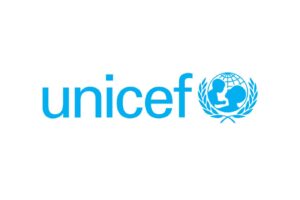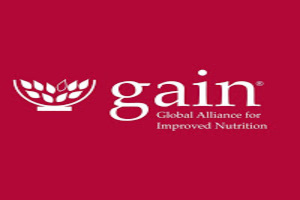Anticipated timeframe: April 2023 and June 2023
Working days:35 – 45 person days per consultant Location: East Africa (Tanzania)
This project is implemented in Singida Region Tanzania in four out of the seven districts of Singida (Manyoni, Iramba, Ikungi and Singida Rural) which have the highest numbers of schools (384) and where eye conditions are more prevalent due to the dusty, semi-arid environment. A study conducted in Tanzania’s Mbarali District in 2017 highlights that the level of visual impairment and blindness among under five-year-olds was higher than among older children, with lens-related conditions (mainly un-operated cataract) being the leading cause of severe visual impairment and blindness (Journal of Ophthalmology of Eastern Central and Southern Africa July 2017). Most blinding conditions in children are preventable.
Purpose of the End of Term Evaluation
The end of term evaluation will cover all activities undertaken in the project from February 2021 to end of June 2023. The purpose of the evaluation is to understand how well the project has performed in relation to its objectives and the achievement of the outputs and outcomes. The evaluation will aim to elicit the key learnings that can be drawn from the project, in particular what has worked well, what could have worked better, and why, also to formulate a concrete and viable set of recommendations to inform future project design and implementation.
Sustainability and ownership of the services by the project partners is also key area of enquiry. The evaluation will try to understand what short-term impact the project has had on both, its intended participants (what changes have they seen or experienced as a result of the project) and on the health system (whether it has been strengthened and how). The primary audience is Sightsavers (eye health programme, programme design and MEL staff) the project implementing partners and the donor (USAID).
The evaluation will apply an adapted set of DAC criteria to review the project in the areas of relevance, effectiveness, efficiency, impact, sustainability, scalability, and equity and inclusion. The evaluation questions developed under each of these criteria will incorporate a gender, equity and disability inclusion lens.
Evaluation Questions
The evaluation questions have been developed collaboratively by Sightsavers’ Tanzania Country Office team, Global Technical Lead for Eye Health ECSA, MEL team and other advisory staff. Sightsavers remains open to making revisions to these evaluation questions in consultation with the contracted evaluator during the inception phase. Please see the ToR for finite details.
Methodology
The evaluation will employ a mixed methods approach, triangulating secondary project documentation and data with some qualitative primary data collection which is likely to include key informant interviews and focus group discussions with various project stakeholders in at least two project districts. The evaluation will be guided by the evaluation questions developed above and develop an evaluation matrix to establish data sources and to guide the analysis.
Outputs
During the inception period, the consultant will have the opportunity to recommend the most appropriate outputs, based on the evaluation methodology and approach employed. As a minimum, the key outputs of this evaluation will include:
- A draft Inception Report in English
- A final Inception Report in English
- A draft Evaluation Report in English
- A final Evaluation Report in English
- Learning summary of key findings of the Evaluation Report in English
- Data sets (Excel or Word files) for all collected data (quantitative and qualitative)
- PowerPoint slides summarising the key findings from the review.
Where possible, the consultants should also provide ‘work in progress’ /draft analysis or the draft report (depending on timing) to Sightsavers, so that some of the emerging findings can be shared with project stakeholders for feedback and validation.
Dissemination
If possible, the evaluation will aim to bring together the key stakeholders for a remote or in person learning and validation workshop in May 2023 before the formal end of the project. This could include a de-brief of the findings of the evaluation, and a validation of the recommendations.
The report will be submitted to the donor alongside the project completion report in mid-August 2023.
Ethics and safeguarding
The evaluation team will adhere to the contractual terms and conditions with Sightsavers, including clauses in relation to confidentiality, data protection and intellectual property rights. It is expected that the evaluation will fully follow ethical principles for evaluation, and that the team will adhere to Sightsavers guidelines on ethical considerations for evaluation (Appendix 1), Safeguarding policy and code of conduct (Appendix 2). It is also a requirement that all members of the evaluation team have completed the short online UNICEF ethics training, or equivalent, before embarking on the evaluation.
Indicative Timeframe
1 Tender and contracting, March 2023
2 Inception, March/April 2023
3 Primary Data Collection, April/May 2023
4 Analysis and reporting, May/June 2023
5 Revision, approve final report, July 2023
6 Dissemination and uptake of learning, August 2023
Logistical Arrangements
It is the responsibility of the consultant to ensure the organisational aspects of the fieldwork including hotel bookings (as necessary), partner contacts, and other logistics. The consultant should include in the initial budget an outline for costs related to logistics.
Profile of the consultant
Sightsavers will welcome expressions of interest from qualified independent consultants or consultancy companies. The consultant and team members should have the following core competencies and experience:
- Extensive experience in monitoring and evaluation for international development project/programmes, with strong skills in both qualitative and quantitative approaches.
- Thematic expertise in eye health evaluations is essential, preferably with some experience in public health and child eye health and school screening programmes. Comprehensive understanding of preferred practices/policy issues at global and national level is desirable.
- Prior experience working in Tanzania is essential, preferably in Singida Region including data collection experience. A consultant or team with members located in Tanzania is preferred
- Proven experience conducting evaluations of an appropriate scope and scale.
- Ability to travel within Tanzania is required – ideally within Singida Region.
- Proven ability to produce concise, readable and analytical reports.
- Excellent communication skills in written and spoken English. Fluency in local languages in Tanzania is highly desirable.
- The consultant will be based in Tanzania with knowledge of and experience of working in Tanzania
Consultants with a proven track record in the above will be procured to undertake the project through an expression of interest process.
Full details of the project, Scope of Work, Outputs/ Deliverables and budget can be found within the attached ToR.
How to express your interest:
Please read the complete ToR, and complete our Expression of Interest (EoI) form and Budget Template which can be found via the application link by 7 April 2023.
The EoI response should include roles and responsibilities of the consultants and number of days input, as well as a proposed workplan and indicative budget, including team members’ daily rates for the assignment and any other anticipated expenses.
Interested bidders are also requested to include CV(s) and an example of previous similar work.
Interviews are likely to be held week commencing 17 April 2023
Please note that due to the high volume of applications anticipated it is possible that only successful applicants will be contacted.
We reserve the right to close this opportunity early.
Sightsavers is an employer that does not tolerate any form of harassment and has zero tolerance for sexual exploitation and abuse. All potential candidates will be subjected to rigorous background checks and controls.


